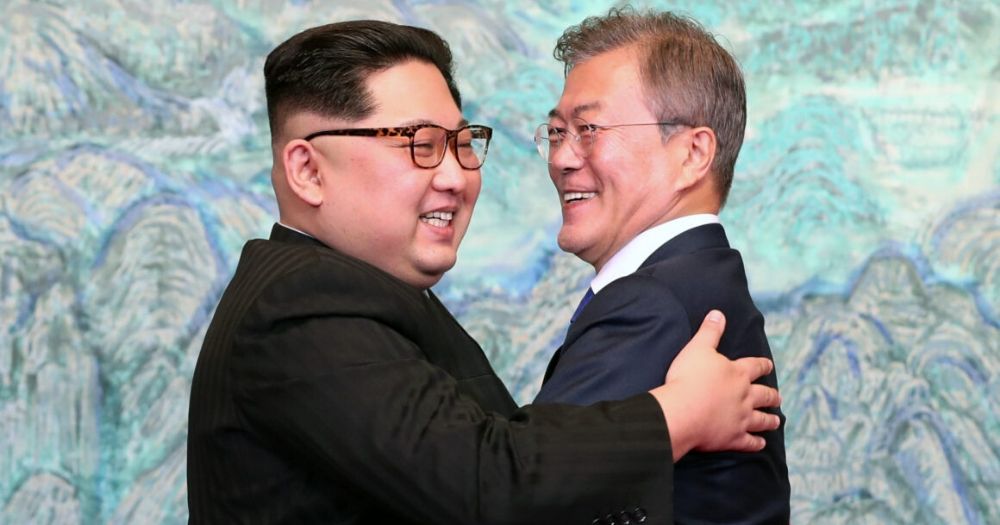North Korean leader Kim Jong Un has been missing from the public eye since April 11, 2020.
He was last seen at a politburo meeting, an event reported on by North Korean state media.
He missed the commemoration of Kim Il Sung's birthday on April 15, leading to speculation that the leader could possibly be dead.
While South Korea and the United States governments have played down the matter, there has been no concrete proof that the North Korean leader is alive in Pyongyang's state media, beyond reports of messages sent in his name.
Kim's death would pose a serious threat to North Korean regime
While the status of Kim's mortality is still shrouded in mystery, his death or incapacitation could pose a serious threat to the existing North Korean regime.
North Korea’s leadership is hereditary in nature -- only those of the Mount Baekdu bloodline, or Eternal President Kim Il Sung's descendants, can qualify as a successor to the communist "throne".
This means that internal stability is heavily reliant on the smooth transition to a new, qualified leader.
However, unlike his grandfather Kim Il Sung and father Kim Jong Il, the current North Korean leadership appears not to have a clear successor in mind yet.
North Korean succession in question
Kim has children, but they are too young to rule.
While the media spotlight has shone on Kim Yo Jong, the leader's younger sister, it is unlikely that she will succeed her brother.
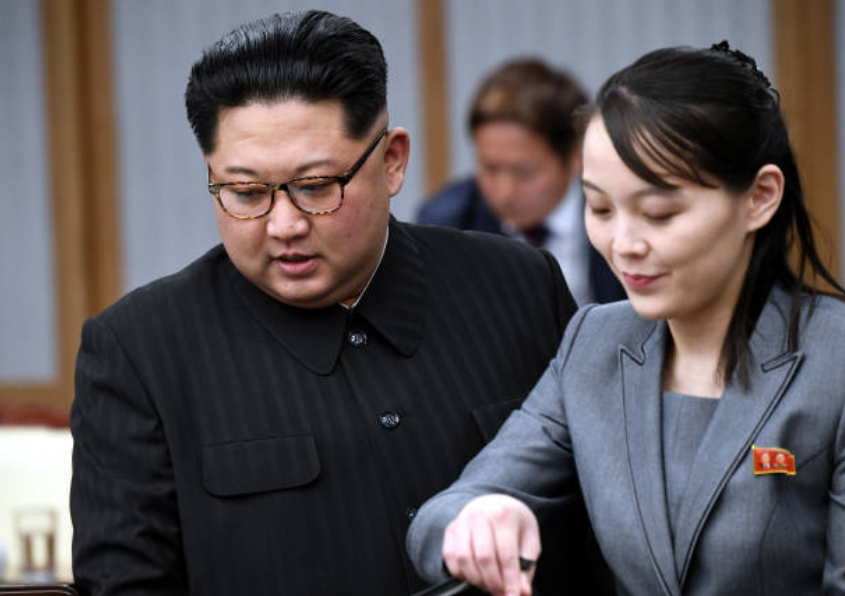 Image via Korea Summit Press Pool/Getty Images
Image via Korea Summit Press Pool/Getty Images
Bong Young Shik, a research fellow at Yonsei University Institute for North Korean Studies, told Mothership that it is highly unlikely for his sister to become the next leader due to the country's discriminatory feudal system when it comes to gender equality.
"Furthermore, she does not have any track record as a military leader or charismatic political leader," Bong said.
While he does not discount the possibility that the younger Kim could be one of the leading political figures in the future, he also said that she has only been "as powerful as her brother allows her to be".
"Without Kim Jong Un in power, I don't think Kim Yo Jong's power will be sustainable," he said.
Another possible successor could be the current leader's uncle, Kim Pyong Il, who is Kim Jong Il's half-brother, and part of the royal bloodline.
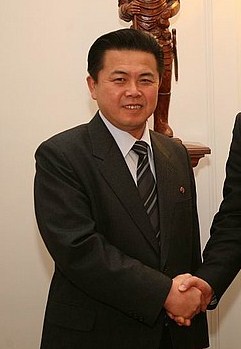 Photo via prezydent.pl
Photo via prezydent.pl
The last known surviving son of Kim Il Sung, he served as North Korea's ambassador to multiple European countries, such as Hungary, Finland, Poland and Czech Republic, and has served as a battalion commander in the North Korean military.
He returned to North Korea last November, and is now under house arrest, according to Thae Yong Ho, North Korea’s deputy ambassador to the United Kingdom before he defected to South Korea in 2016, Bloomberg reported.
But the odds might be against Kim Pyong Il in taking over the country's top spot.
Kim Jong Il and his half-brother's bitter rivalry over the succession went as far back as the late 1970s, which could imply possible internal hostility between the current leader and his uncle as well.
Potential instability in North Korea if Kim Jong-Un is dead
In the foreseeable future, it may seem that the next leader of the communist regime would not have a smooth succession to the top.
Previously, Kim Jong Il was well-groomed by Kim Il Sung before succeeding the communist throne.
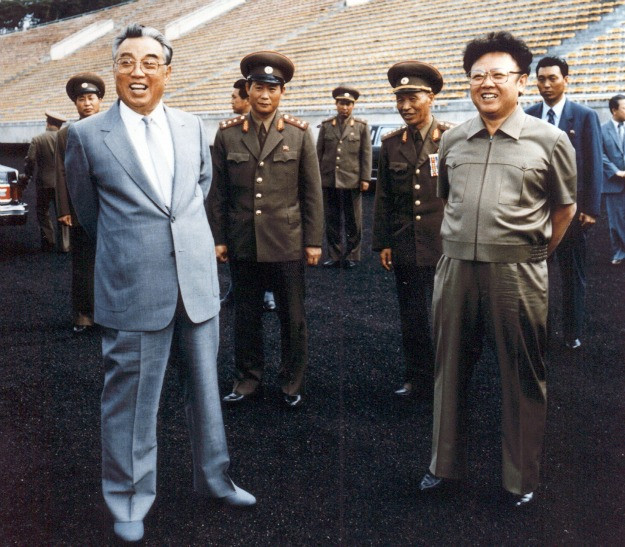 Image credit: AFP/Getty Images
Image credit: AFP/Getty Images
By the time Kim Jong Il officially took over the reins of power from his father in 1994, he had already been running the country for a while.
He had long been in control of the party operation and was named commander of the armed forces in 1991, according to Time.
Back in 2010, while little was known of Kim Jong Un, there were several signs that he was being groomed to succeed his father.
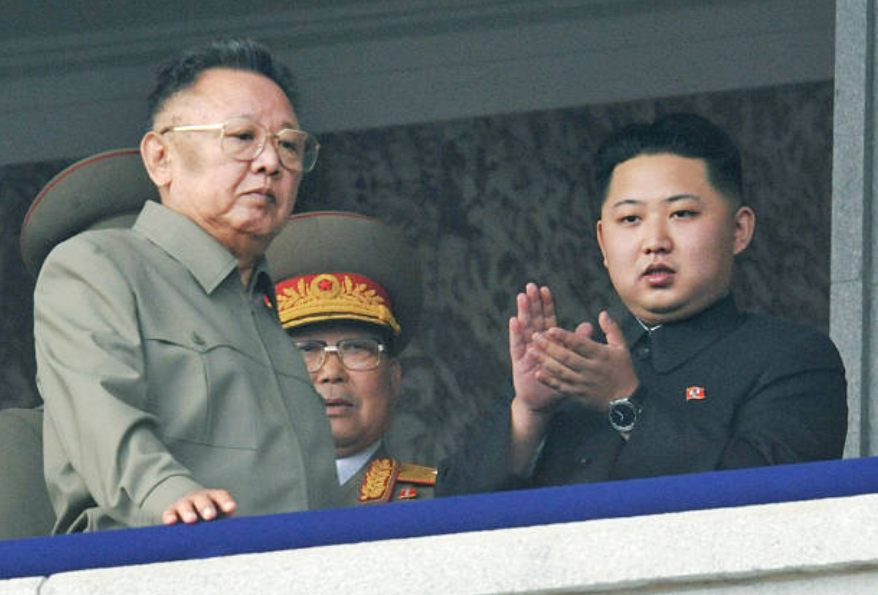 Image credit: Kyodo News/Getty Images
Image credit: Kyodo News/Getty Images
Kim Jong Un was reportedly made a member of parliament in 2009, and was widely touted as the next North Korean leader for more than a year before his father's death in 2011, reported The Guardian.
While the succession of North Korea's leadership is often shrouded in mystery, the lines currently are much more blurred as compared to the last two successions.
If an internal power struggle ensues after the current leader's death, the collapse of the communist regime in North Korea is not impossible, albeit it being unlikely.
A common characteristic of family dictatorships is rapid and often unexpected collapse, Foreign Policy wrote.
While there are few external threats to the longest-lasting regime since World War II, the lack of a clear successor may trigger the downfall of the Mount Baekdu bloodline.
Potential trouble for South Korea
North Korea's instability would likely trigger several problems for their southern neighbours.
While Kim Jong Un's existence remains a potential threat for South Korea, the stability of the communist regime would suggest a more stable and expected threat for the South.
An uncertain leadership could lead to North Korea becoming an unstable threat in the region, particularly for South Korea.
"If Kim Jong Un is dead, North Korea would be like a headless chicken with no leadership at the centre," Bong told Mothership.
"Who is going to manage the nuclear weapons programme? Who is going to provide border stability?"
While there are two remaining senior members besides Kim Jong Un in the North Korean politburo, cabinet premier Kim Jae Ryong and assembly president Choe Ryong Hae, the void in central leadership needs to be resolved quickly.
Border instability and the nuclear question
A power vacuum in the central leadership could easily turn into an internal power struggle, destabilising the communist regime.
While there are other factors to consider as well, a destabilised regime could result in border instability, causing an influx of defectors from the North attempting to cross the Demilitarised Zone into South Korea.
In addition, it would be unclear as to whom will take over as the next leader and manage North Korea's nuclear weapons programme.
North Korea's nuclear weapons programme has all along been used as a tool of negotiation with the outside world, especially with the U.S. government, as long as the Kim family's regime remained in power.
Uncertain succession and leadership would bring us to several questions about the management of the nuclear weapons programme, and whose hands it would land into, posing a very real threat for their South Korean neighbours.
Furthermore, with South Korean President Moon Jae In in power, inter-Korean relations seem to have improved significantly since 2018, after North Korea participated in the 2018 Winter Olympics hosted in Pyeongchang, South Korea.
The historic inter-Korea summit in April 2018 saw Kim Jong Un cross into South Korean territory, the first North Korean leader to do so since the Korean War in 1953.
During the summit, the two leaders discussed denuclearisation, peace establishment and improvement of inter-Korean relations for their mutual benefit.
All of these efforts would be thrown into question again, if Kim Jong Un were to die without a successor.
These problems exist, even if Kim is alive
As far as speculations go, the North Korean dictator is likely to be alive.
South Korean intelligence have claimed that he is alive, despite rumours swirling.
“Our government position is firm,” Moon Chung In, South Korean President Moon Jae In’s main foreign policy adviser, told CNN.
“Kim Jong Un is alive and well. He has been staying in the Wonsan area since April 13. No suspicious movements have so far been detected.”
However, regardless of Kim Jong Un's status, these issues remain for South Korea to think about, as long as North Korean succession remains unclear to them.
If anything, the rumours suggest a need for South Korea, and possibly the U.S., to redouble their efforts to work through various scenarios of leadership change in North Korea, as suggested by The Washington Post.
As for questions about why we haven't heard from the hermetic leader in more than two weeks, by Kim Jong Un's track record, the leader of North Korea is not accountable to international media.
And whatever he's up to is anybody's guess.
Related stories:
Top image via AFP/Getty Images
If you like what you read, follow us on Facebook, Instagram, Twitter and Telegram to get the latest updates.
